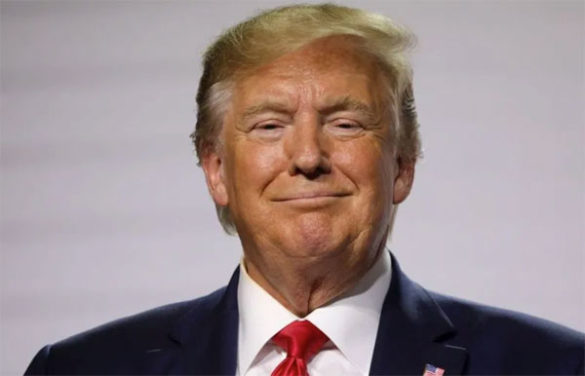
The Mysterious Case of Trump’s Trade Calls With China
Chaos reigned in U.S.-China relations last weekend after a series of claims and threats by U.S. President Donald Trump, who swung from trying to order U.S. firms out of China and promising to further raise tariffs, to praising Chinese President Xi Jinping as a “great leader.” But the most confusing part was when Trump claimed to have made trade talk breakthroughs in calls with China, while Beijing has repeatedly denied that any such calls even occurred.
Who’s lying here? Let’s face it, both the Chinese government and the U.S. president are often unreliable narrators. But on this one, China’s version of events looks more plausible. Beijing normally lies about sensitive data, not matters of diplomatic protocol—and the White House hasn’t produced any readouts of the alleged calls. It’s possible Trump exaggerated a real call between trade officials, but he may also have invented the call entirely to try to prop up falling stock prices (Trump’s claims resulted in a small market rally). There’s also the usual Trumpian rhetoric of dominance: Others are often calling him to ask for favors, or for his mediation, by his account.
Why does this matter? White House hawks like Peter Navarro, Trump’s director of trade and manufacturing policy, and Michael Pillsbury, the director for Chinese strategy at the Hudson Institute, were briefly triumphant over Trump’s hard-line take, but it seems unlikely that their vision of a permanent U.S.-China rift is one Trump shares. Yet it may happen anyway. China’s government is as sensitive to perceived status and dominance as Trump is, and any attempt to cast Beijing as petitioner will leave Chinese authorities angry and resentful.
The issue of Trump’s supposed calls may also cause further confusion in Beijing as to just what his plan is. In the early months of the Trump presidency, Chinese analysts were inclined to see him as a Machiavellian business genius. Events over the past three years have somewhat eroded that view, but Beijing is still likely to see the lying and policy swerves more as a deliberate plot than a president’s mood swings. That will reinforce the impression that the United States can’t be trusted, not just under Trump but in the long term.
Source: https://foreignpolicy.com/2019/08/28/the-mysterious-case-of-trumps-trade-calls-with-china/